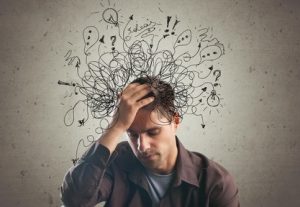When people talk about accidents, they usually focus on physical injuries like broken bones, bruises, whiplash, and so on. But what often gets left out of the conversation is how much these experiences can shake you up emotionally.
If you’ve been feeling anxious, on edge, or just not quite yourself after an accident, you’re not alone. Many people find that long after the cuts and bruises have healed, they’re still dealing with the emotional fallout. Some may experience anxiety, flashbacks, nightmares, or even symptoms of PTSD (Post-Traumatic Stress Disorder).
This article isn’t here to worry you but to let you know that these reactions are common, real, and nothing to be ashamed of. Most importantly, help is out there if you need it.
Why Accidents Can Trigger Anxiety or PTSD
Whether it was a car accident, a fall at work, or something more frightening like an assault, any sudden or traumatic event can leave a mark on your mind as well as your body.
When something terrifying happens, your brain goes into survival mode, triggering what’s often called the “fight or flight” response. Your heart races, adrenaline surges, and your body prepares to either run away or defend itself. This is completely normal in the moment, but sometimes those feelings don’t switch off once the danger has passed.
In some cases, this can lead to anxiety, ongoing stress, or PTSD. And it doesn’t always depend on how serious the incident was. Even what seems like a “minor” incident can still feel traumatic, depending on the situation and how it affected you personally.
What Anxiety or PTSD Might Feel Like After an Accident
If you’ve been feeling different since your accident, here are some of the signs that could suggest anxiety or PTSD:
- Flashbacks or upsetting memories that pop into your head unexpectedly.
- Feeling nervous, jumpy, or constantly on edge.
- Panic attacks or a racing heartbeat when reminded of the event.
- Avoiding certain places or activities (like driving, using public transport, or going back to work).
- Nightmares or trouble sleeping.
- Mood swings, irritability, or feeling unusually emotional.
- Feeling disconnected from friends, family, or even yourself.
It’s worth saying again that these are normal reactions to trauma. They don’t mean you’re weak or “not coping properly.” In fact, recognising how you feel is a really important first step.
When Is It Time to Get Support?
The short answer? Anytime you feel like you need it.
There’s no “right” amount of time it should take to get over a frightening experience. Some people bounce back quickly, while for others, the emotional side of things can take much longer to heal.
It might be a good idea to speak to your GP or a mental health professional if:
- Your symptoms aren’t getting better after a few weeks.
- You’re struggling with everyday life like going to work, driving, or looking after yourself.
- Your relationships are being affected because of how you’re feeling.
- You’re avoiding things or places that remind you of the accident.
- You’re feeling low, hopeless, or having thoughts of self-harm.
Reaching out for help can feel daunting, but it’s one of the best things you can do for yourself. Therapy, counselling, and support groups can make a real difference. Just talking about what happened can often be the first big step toward feeling better.
How Anxiety or PTSD Can Affect Life After an Accident
One of the hardest things about anxiety or PTSD is that it doesn’t always look obvious from the outside. Friends, family, or colleagues might assume you’re fine, especially if your physical injuries have healed, but inside, it can feel like your world’s been turned upside down.
You might find yourself:
- Avoiding activities you used to enjoy.
- Feeling on edge or easily startled in everyday situations.
- Losing confidence in things like driving, working, or socialising.
- Feeling isolated because it seems like nobody else understands what you’re going through.
All of this can take a serious toll on your quality of life, even if you’re doing your best to carry on as normal. But the main thing to remember is that recovery is possible, and you don’t have to deal with it all on your own.
What Are Your Options for Getting Help?
There are lots of ways to get support if you’re struggling with anxiety or PTSD after an accident. Here are a few places you might start:
- Your GP: They can talk through what you’re experiencing and refer you for therapy, counselling, or other support.
- Therapy or Counselling: Talking therapies like CBT (Cognitive Behavioural Therapy) can help you process what happened and learn ways to manage your symptoms.
- Charities and Support Groups:
- Mind
- Anxiety UK
- PTSD UK
These organisations offer advice, helplines, and resources that can really help you feel less alone.
- Self-Help Strategies: Keeping a journal, practising mindfulness or relaxation techniques, gentle exercise, and connecting with supportive friends or family can all play a part in recovery.
It’s about finding what works for you.
A Quick Word on Personal Injury Claims
Although this article isn’t about lodging a compensation claim, some people may wonder whether they can include anxiety or PTSD as part of a personal injury claim. The simple answer is yes, sometimes you can.
Psychological injuries like these are taken seriously under UK law, just like physical ones. If your mental health has been affected by an accident that wasn’t your fault, it may be worth getting advice from a personal injury solicitor to explore your options. It doesn’t mean you have to start a psychological injury claim, but knowing where you stand can give you some peace of mind.
The most important thing, though, is your well-being. Whether or not you decide to begin a claim, getting the right support for your mental health is what really matters.
Final Thoughts
If there’s one thing we hope you take away from this article, it’s that anxiety and PTSD after an accident are nothing to feel embarrassed about. It’s not something you just have to “get over”, and if you are struggling it doesn’t mean you’re failing.
Healing takes time, and that includes your mental health. Be patient with yourself, take things at your own pace, and remember that help is out there if you need it.



